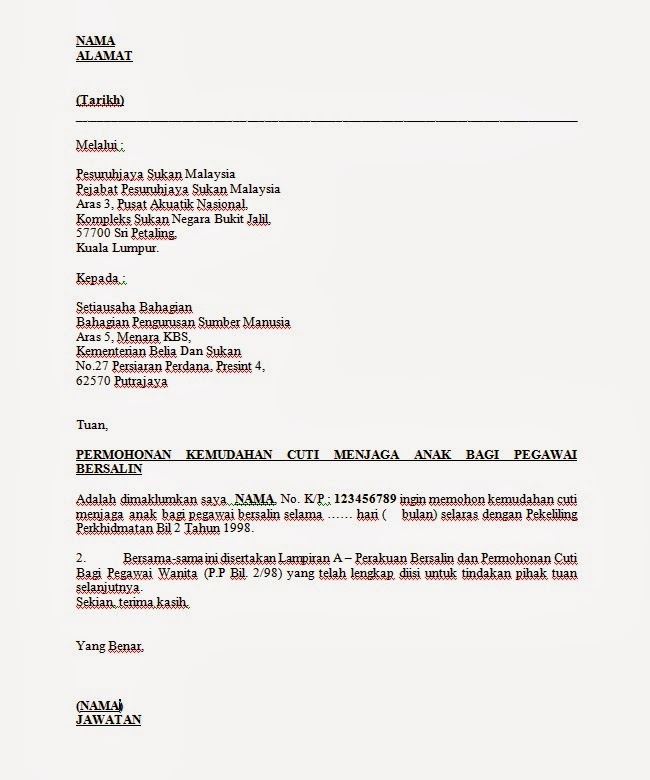Taking a break from work is sometimes necessary, whether it's for personal growth, family matters, or pursuing a passion project. While paid leave is ideal, there are situations where unpaid leave might be the only option. Navigating this process requires a clear understanding of your company's policies and effective communication.
Requesting unpaid leave, or a leave of absence without pay, involves a formal process of communicating your need for time off to your employer. This usually involves submitting a written request outlining the reasons for the leave, the proposed dates, and any arrangements for your responsibilities while you're away. This process ensures transparency and helps both you and your employer plan for your absence.
The concept of unpaid leave has likely existed as long as employment itself, evolving alongside labor laws and workplace norms. In the past, taking extended time off often meant risking one's job security. However, as work-life balance gains importance, many companies now recognize the need for more flexible leave options.
The importance of a clear and well-structured unpaid leave request cannot be overstated. It demonstrates professionalism, respect for company procedures, and a proactive approach to managing your time. A well-written request increases the likelihood of approval and minimizes potential misunderstandings or complications during your absence.
One of the main issues surrounding unpaid leave is the potential financial strain it can put on employees. Taking time off without pay can impact savings, bill payments, and overall financial stability. It's crucial to carefully consider your financial situation and explore alternatives, such as using accrued paid time off, before requesting unpaid leave.
Advantages and Disadvantages of Unpaid Leave
| Advantages | Disadvantages |
|---|---|
| Pursue personal or professional goals | Loss of income |
| Maintain employment while addressing personal needs | Potential impact on benefits (healthcare, retirement) |
| Flexibility in scheduling time off | Possible career disruption or setbacks |
Best Practices for Requesting Unpaid Leave
1. Consult Your Employee Handbook: Familiarize yourself with your company's policies on unpaid leave, including eligibility criteria, request procedures, and potential implications for benefits.
2. Plan and Provide Ample Notice: Determine the exact dates for your leave and submit your request well in advance. The more notice you give, the better your employer can adjust and plan for your absence.
3. Communicate Clearly and Professionally: Use a formal tone in your written request, clearly stating your reason for the leave, the desired dates, and your commitment to returning to work.
4. Address Workload and Responsibilities: Outline how you plan to manage your workload before and after your leave. If possible, delegate tasks and provide clear instructions to colleagues.
5. Follow Up: If you haven't received a response within a reasonable timeframe, follow up with your supervisor or HR representative to inquire about the status of your request.
Frequently Asked Questions
1. Can my employer deny my request for unpaid leave?
Laws and company policies vary. In some cases, employers may be required to grant unpaid leave for specific reasons (family or medical leave), but they may have discretion in other situations.
2. Will my health insurance continue during unpaid leave?
This depends on your employer's policy and local laws. In some instances, you may need to pay your portion of the premiums to maintain coverage.
3. Can I use unpaid leave intermittently?
Some employers allow for intermittent unpaid leave, such as taking one day off per month. Check your company's policy.
4. How long can I take for unpaid leave?
The maximum duration varies depending on your reason for leave, company policy, and local laws.
5. What happens to my job while I'm on unpaid leave?
Your employer may be required to hold your position open or offer a comparable position upon your return. Review your employment agreement or consult with HR.
Tips for a Successful Unpaid Leave Experience
* Financial Planning: Create a budget that accounts for the loss of income during your leave. Explore options for financial assistance if needed.
* Communication is Key: Maintain open communication with your employer and colleagues throughout the process. Provide updates if your return date changes.
* Transition Plan: Have a strategy for returning to work, including catching up on missed information and reintegrating into your role.
Requesting unpaid leave requires careful planning, clear communication, and an understanding of your rights and company policies. By following the steps outlined in this guide and engaging in open dialogue with your employer, you can increase the likelihood of your request being approved while minimizing potential disruptions to your career and financial well-being. Remember, effectively managing your time off, whether paid or unpaid, contributes to a healthier work-life balance and allows you to prioritize personal growth and well-being.
Spruce up your soak zone your guide to bathroom bliss at the home depot
Mom tattoo black and white a timeless tribute
Chevy duramax 30l diesel towing power efficiency unleashed
contoh surat memohon cuti tanpa gaji - Khao Tick On
contoh surat memohon cuti tanpa gaji - Khao Tick On
contoh surat memohon cuti tanpa gaji - Khao Tick On
contoh surat memohon cuti tanpa gaji - Khao Tick On
contoh surat memohon cuti tanpa gaji - Khao Tick On
contoh surat memohon cuti tanpa gaji - Khao Tick On
contoh surat memohon cuti tanpa gaji - Khao Tick On
contoh surat memohon cuti tanpa gaji - Khao Tick On





